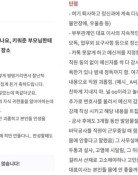Smaller companies being bullied, sucked dry by larger ones
Smaller companies being bullied, sucked dry by larger ones
Posted May. 17, 2011 05:54,
A Korean shipbuilder entered the worlds top 10 in backlog orders thanks to bold investments and management. Six of its suppliers, however, recently sued the company for 20 billion won (18 million U.S. dollars) after being forced to close.
An employee at a subcontractor said, We are victims of tyranny. Whats left of us is seizure stickers and massive debt.
○ Negative feedback loop
One subcontractor started to supply its products to the shipbuilder in 2007 and has since boasted annual sales of 2 billion to 3 billion won (1.8 million to 2.7 million dollars). Even as sales increased, however, losses grew as the shipbuilder forced the subcontractor to offer prices below unit cost.
An employee of the subcontractor said, We couldnt complain because the shipbuilder was our sole client. We needed emergency money and had to draw our pay in advance. We fell into a negative feedback loop.
Other companies that sued the shipbuilder said they were forced to do the work even before signing of the contract and had to change designs more than 10 times a month.
A source at the shipbuilder, however, said, Our suppliers fell victim to poor personnel management or manufacturing. If what they say is right, all of our 70 to 80 suppliers would have shut down.
The shipbuilders three other suppliers shut down last month, however.
A secondary subcontractor that supplies water valves to its primary subcontractor that supplies products to a large construction company is also suffering. Though the secondary company had worked with the primary one for 15 years, the latter paid the former just 20-30 percent of outstanding payments over the past four years and were issued eight-month promissory notes when finally paid.
The secondary subcontractor asked for payment saying it could no longer operate the factory, to which the primary subcontractor answered with verbal abuse saying it was arrogant and demanded the mold it had lent to the former 14 years ago.
The secondary subcontractor had taken molds, made castings, and returned them to the primary subcontractor. It said it had to take all the blame because of lack of evidence that it returned the mold.
○ Widening gap between larger and smaller companies
Though large companies are showing record earnings, smaller ones are feeling the pinch. Amid the widening gap, workers at smaller companies are losing more confidence.
Last year, 26 major corporations including Samsung Electronics, Hyundai Motor and POSCO saw net profit per employee top 100 million won (92,000 dollars). The trickle-down effect on smaller companies has been minimal, making them feel a greater sense of deprivation.
According to the Bank of Korea Asset, growth at large companies was 10.58 percent last year, up from 7.69 percent in 2009. Over the same period, small and mid-size companies saw the figure fall to 8.66 percent from 9.64 percent.
The business sentiment index of the central bank, the Korea Chamber of Commerce and Industry and private think tanks are all showing a widening gap between larger and smaller companies.
Money is not the only problem. Many smaller companies are losing talented employees to large companies.
A supplier of software to a conglomerates affiliate has hired 30 employees over the past four years but 20 of them have left. It spent six months training new employees but a large company took most of them.
An employee at the supplier told the government that the large company took the supplier`s employees by offering higher pay. The government said the move was legal, however, something which the large company had known beforehand.
To small companies, life is a matter of survival rather than making money. According to a survey of 195 small and medium companies, conducted by the Korea Federation of Small and Medium Business, that supply products to large companies, only 35.4 percent said the increase in commodity prices were reflected in their supply prices.
More than half of the surveyed (55.6 percent) said large companies simply rejected any raising of prices.
foryou@donga.com hparks@donga.com







